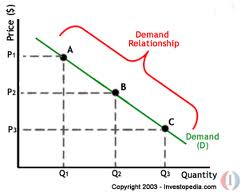HOW TO NEGOTIATE SALARY AT INTERVIEWS

with

Moruf Kolawole Nasir
(Experienced HR professional)
nmkolawole@gmail.com; info@jarushub.com
One of the hurdles job seekers have to scale through prior to employment is salary bargaining. What one is able to negotiate at this stage is a decision one will live with for a long time, it can also make or mar one’s chances of clinching the job. Luckily most structured organizations have salary structure, this saves job seekers the nightmare. Unfortunately too, getting employment in structured companies is getting tougher by the day, thus leaving applicants at the mercy of unstructured companies, where most often, salaries are paid based on your power of negotiation. How applicants will scale through this successfully is the thrust of this piece.
- FACTORS THAT INFLUENCE NEGOTIATION POWER
The following factors have strong influence on the negotiation power of any applicant.
The current status of the job seeker
I have heard people argue that people who are sure of themselves and of their qualifications who know the value of what they want to offer the company don’t price themselves low. This view holds that it is people who have less to offer that give themselves out cheaply. This line of thought is one of the many misconceptions people hold. Experience has shown that how comfortable an applicant is, determines how well he/she will do at the critical stage. A currently engaged applicant who seeks a better offer will have better control of the negotiation discussion than the applicant who has been unemployed for a long time. Similarly, a fresh graduate who is being fed comfortably by his parents tends to negotiate better than a fresh graduate whose parents and siblings are looking up to them for their daily bread.
Information available to job seeker
There is no gainsaying that when comparing two applicants’ performance during negotiation, the one with information on how much the company pays will do better than the one who has no such information.
Orientation of the employer
This is one serious factor that mars many applicants’ chances of either getting the job or getting good pay. I have the privilege of working with two different one man business owners, and the two of them are opposites when it comes to applicants’ desired salary. While one of them holds the orientation that high salary request translates to having lots to offer; the other sees applicants with high desired salary as being greedy and as such does not bother persuading them for lesser pay, rather she writes them off immediately. With these two orientations, point 1 and 2 above come to the fore and will be the determining factor.
- HOW TO AVOID SHORTCHANGING YOURSELF
Having said all these, how then does one go about this serious business without shortchanging oneself, and at the same time not losing the job due to high salary demand?
Know when to discuss salary
I hear lots of prepared speeches from applicants when asked what their salary expectations are. Some writers are of the opinion that the question should be avoided, this hardly holds water because it is impracticable and unrealistic for someone being interviewed to avoid this question that recruiters often ask to take some decisions. In fact, some recruiters go further, asking for your pay slip from previous employment, to enable them compare it with the applicant’s expected pay.
How to handle this? There is no point avoiding the question, initiating the topic of salary discussion is what should be avoided. No recruiter hires anybody without discussing pay with the person. When ask simple state your expectations and reasons, if need be, otherwise simple state your expectation.
Request to know the other benefits aside the usual salary
Before quoting figure on your expected salary, it is important to know other benefits besides your normal pay. This may be taken for granted in the multinationals and the structured firms, it should however be taken seriously in the one-man businesses in our unique environment. The simple litmus test I recommend for people is to ask if the company has Group life policy for staff in place. Nigerian companies take some of these statutory requirements for granted. I also it take for granted that any company that complithis simple legal requirement will have at least average welfare for her staff. If this fails, then medical facility for staff may also be inquired. Many companies will pass this; in the case of failure of this test also, then the interviewee should have it at the back of his mind that whatever he bargained for may be all he gets from the company. This should thus guide his/her salary expectation/demand.
Get Information on the company’s average salary or the industry average
The surest way to be at ones best during salary discussion at interview is to have idea of what the prospective employer pays for the position or how well the company pay her staff. If this information is not available one may also try getting information on the industrial average for the position. With any of this information the interviewee is better equipped to discuss salary issues without shortchanging his/herself and at the same time not sounding greedy.
Do not portray yourself as being particular about only the pay: I once sent out interview invitations to some applicants for fresh graduate’s job, to my surprise one of them called just to ask if the company pay well. Immediately I knew she was interested in the pay not the job. The rest is history now. So when all an applicant is interested in is the pay, the interviewer gets the impression that this person will also leave whenever he sees another with higher pay.
The list is not exhaustive but the above will sure guide anybody who find his/herself at this critical stage of interview.
Always remember “In learning you will teach, and in teaching you will learn”.
REGISTER FOR THE NEXT EDITION OF JARUSHUB NETWORKING EVENING
ENROL FOR JARUSHUB INTERVIEW PREPARATION SERVICE FOR DETAILED COACHING ON INTERVIEW
Subscribe free to JarusHub for more articles on interviews and career in general
[subscribe2]
Established in March 2013, JarusHub is a Nigerian information hub with focus on career and management. It is rated Nigeria's most authoritative destination for online career resources. It parades an array of Nigerian professionals who share their career experiences with a view to bridging career information gap and mentoring a generation to success. JarusHub has revolutionised career information and experience sharing in Africa. Whether you're a student, a recent graduate or an established professional, or even an executive, you will always find something to learn on JarusHub. All enquiries to jarushub@gmail.com or 0808 540 4500. Facebook: www.facebook.com/jarushub; Twitter: @jarushub or @mcjarus.
Career Q&A with Jarus: Oil & gas career, poor CGPA
September 17, 2023What is Career Counselling? How to choose the Right Career?
October 24, 2022Career Advice: Play to Your Strength
March 6, 2022
2 comments
Let us have your say by leaving a comment belowCancel reply
Recommended For You
-
FOCUS ON COURSE: Economics
August 9, 2013 -
Great Qualities of a Professional Accountant
September 3, 2018








I have a query with the post, where can i contact the writer?
Would like to receive self building tips